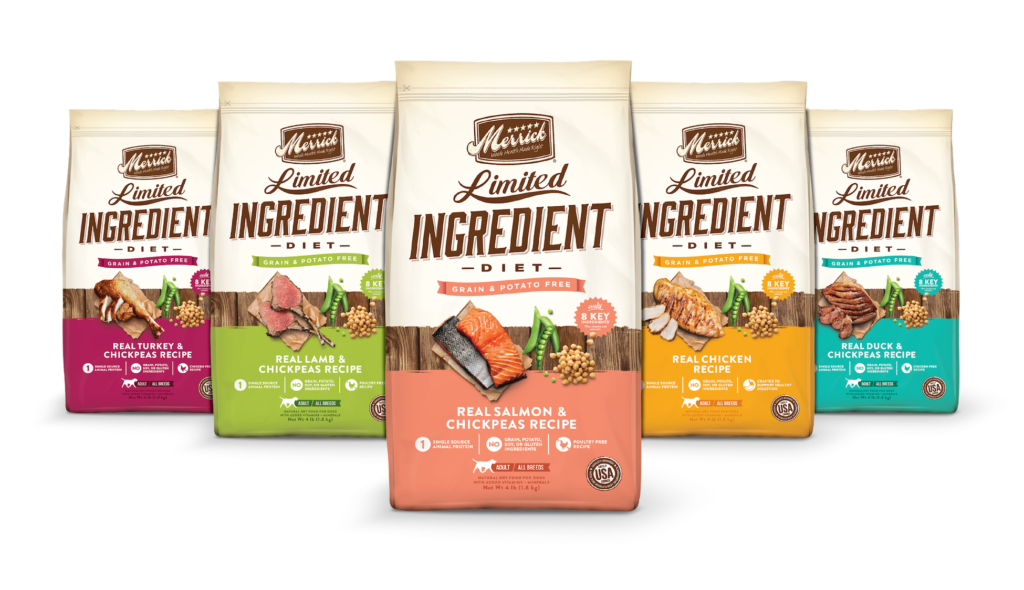Americans are increasingly treating their pets as members of the family, and as a result there’s more emphasis on the type of food being purchased for their furry friends. Human trends and pet trends are also converging, with more pets’ diets matching that of their owners.
A survey of pet owners conducted by the Michelson Found Animals Foundation found that 70 percent of those who follow a diet for themselves have also put their pet on a special diet. For instance, 45 percent of pet owners on a protein-rich diet feed their pets protein-rich foods, whereas only 17 percent of owners not on a protein-rich diet feed their dogs in this manner.
“As pet parents have become more focused on their own health and wellness, they have started looking for premium pet food that mirrors their own health and nutrition choices,” said Jilliann Smith, Director of Communications, Merrick Pet Care.
US consumers are also spending more on pet food and treats than past years; according to recent Nielsen findings, nearly $33 billion was spent on these products in 2018. This represents an increase of 5 percent, or $1.5 billion in sales from 2017.
“As with the human food and beverage industries, product assortment and fulfillment options across the pet industry have exploded as consumers have shifted how they shop for their furry companions,” the Nielsen reports reads.
While more money is being spent, not all major players in the pet food industry are likely to benefit from it. With a shift towards organic, diet-specific and clean-label pet foods, companies producing run-of-the-mill kibble won’t cut it for many modern consumers.
“They want real, simple ingredients they know and understand,” said Smith. “Many pet parents are seeking out some of the same nutrition benefits – such as probiotics and prebiotics for optimal digestion or glucosamine to support healthy joints – and product features – such as organic or responsibly-sourced ingredients – that they want for the rest of their family.”
Merrick Pet Care, a fast-growing natural and organic pet food company, was acquired by the Nestlé Purina PetCare Company in 2015. The company offers a wide variety of pet food and treats across its premium product portfolio, which includes the Castor & Pollux, Zuke’s and Whole Earth Farms brands alongside its signature Merrick brand.
“With some of our Merrick Grain Free wet recipes, like Grammy’s Pot Pie and Wingaling, we continue to hand stuff whole ingredients like baby carrots and chicken wings into the can. Dogs love the taste, but the food also looks and smells appealing to the pet parent,” said Smith.
RELATED WEBINAR: Making Pet Nutrition Clean and Simple: Clean Label Solutions for Pet Food and Treats
It isn’t all good news for Nestlé, as sales of its mainstream pet food brands like Purina fell 6 percent in the third quarter at US supermarkets and drugstores, according to analyst Pablo Zuanic at Susquehanna International Group. This drop is being attributed to changing attitudes towards traditional pet food, with people becoming highly critical of products that contain artificial additives or low-quality ingredients.
Smucker’s experienced similar growing pains, as pet food sales fell 2 percent in its latest quarter. This excludes the $1.9 billion acquisition earlier this year of celebrity chef Rachael Ray’s Nutrish brand, a premium line that says it uses “real chicken” and other high-end ingredients. The sales drop reflected poor performance by brands like Gravy Train and Kibbles ‘n Bits that Smucker’s bought for $5.8 billion including debt in 2015.
As pet food becomes more versatile and more like human food, its clear that processing techniques will have to evolve and become more sophisticated to keep pace. One trend that Smith expects to excel in the coming year is freeze-dried raw food, which uses a process to remove all moisture from the food while keeping it frozen.
“Freeze-drying raw meats and poultry is a stable, safe and convenient way to offer pets the benefits of raw protein as a part of their regular diet,” said Smith.
A clear shift in the pet food industry is underway, but many manufacturers will have to decide how far they are willing to venture into the world of organic and natural ingredients. After all, human-grade ingredients come with higher price tags, and there is a limit to what pet owners are willing to pay.








Join or login to leave a comment
JOIN LOGIN